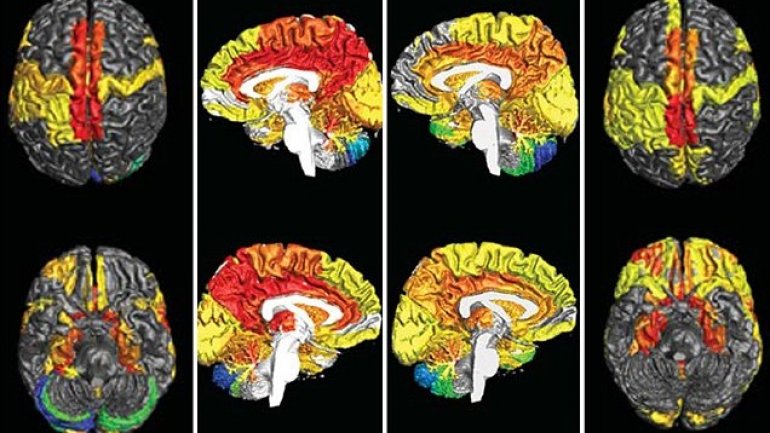Females have significantly more active brains than men. Study claims: Women really DO overthink things

It's a popular stereotype: women overthink things more than men.
Now the biggest brain imaging survey ever conducted has found evidence to support that theory.
Analyzing data from more than 45,000 studies, researchers at Amen Clinics in California concluded that women's brains are significantly more active than men's.
Blood flow was much higher in many parts of women's brains as compared to men's, increasing their ability to focus and empathize but also their vulnerability to feel anxious.
While the finding may settle a few couple's arguments, scientists say it also offers crucial insight into why certain brain disorders are more common in women - such as Alzheimer's - and others in men - such as ADHD
Women have significantly higher rates of Alzheimer's disease, depression and anxiety disorders.
Men, meanwhile, are more likely to have ADHD and conduct-related problems, and are more likely to be incarcerated.
Women's brains were found to be significantly more active than those of men, particularly in two regions - the prefrontal cortex, associated with focus and impulse control, and the limbic system, which is associated with mood and anxiety.
There were some parts of the brain that were more active in men, specifically the visual and coordination centers of the brain.
These findings might explain why women tend to exhibit greater strengths in the areas of empathy, intuition, collaboration, self-control and appropriate concern.
They could also account for increased vulnerability in women to anxiety, depression, insomnia and eating disorders.
Read more Daily mail- Chocolate covered walnuts. Moldovan woman creates pretty innovative delights
- Man, woman KILLED in motorcycle accident
- Man faces jail after partner died during drug-fuelled bondage sex game
- Are you a MAID or a member? Delhi Golf Club 'sorry' after woman ejected over dress
- US woman shoots boyfriend in YouTube stunt
- Brain lives on after body dies, new study finds